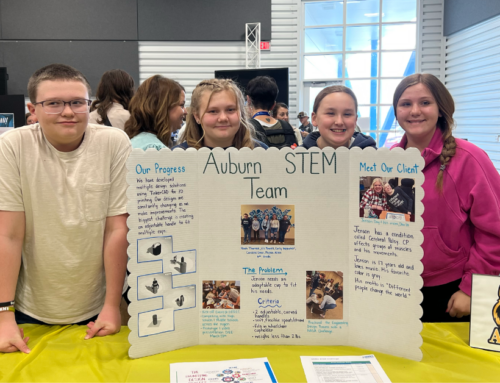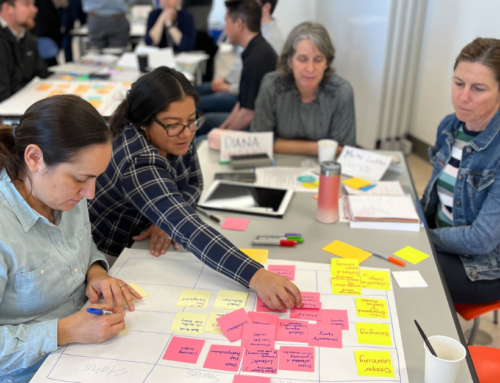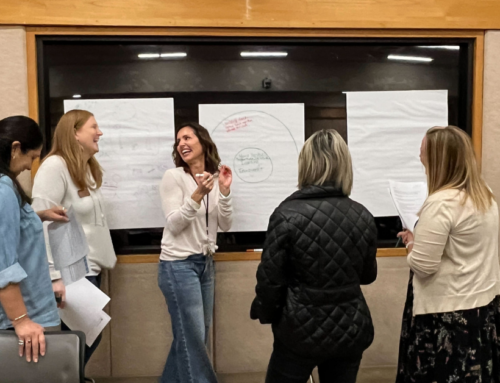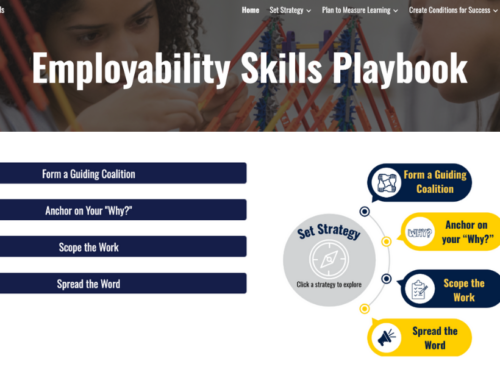Have you ever left a meeting, PLC, or any other professional development session wondering what the purpose was and still unclear about what is expected of you? You’re not alone. This happens at all levels of education, and we often pass these same experiences on to our students. When we adopt a program, new curriculum, or a platform without understanding the vision or the underlying pedagogy, we can fail to reach our desired goal if we don’t change our practices to leverage these new resources.
Dylan Wiliam says, “If we create a culture where every teacher believes they need to improve, not because they are not good enough, but because they can be even better, there is no limit to what we can achieve.” To create this culture of learning for both students and educators, the key elements of learner-centered education can serve as a guide. As outlined in our learner-centered framework, learner-centered experiences are 1) competency-based, 2) personalized, 3) authentic, and 4) inclusive & equitable.
Research shows that adult learners thrive in the very same learner-centered environments that best support our younger learners – environments that:
- promote agency,
- position learning in ways that feel personal and relevant, and
- equip learners with the transferable skills and competencies they need to engage in meaningful learning.
Learner-Centered Education for All Learners
This guides our professional learning approach at Learner-Centered Collaborative, which is designed to accelerate the shift to learner-centered practices by engaging educators in a professional learning process. After all, transformational professional learning is a process, not a singular event.
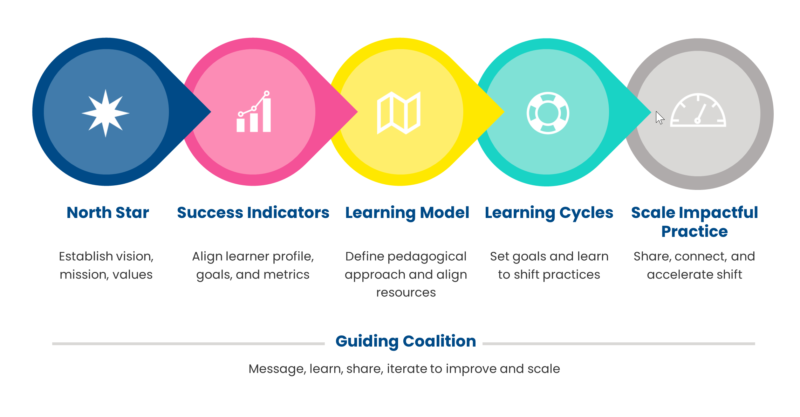
Professional learning with Learner-Centered Collaborative supports districts’ and schools’ journeys to creating the enabling conditions for meaningful, learner-centered change.
A Peek Into the Learning Process
Learner-Centered Collaborative has partnered with Logan County School District in Russellville, KY to support their shift towards a learner-centered paradigm. We are working with their design team, also known as #LCInnovators, to define and develop a shared understanding of the success indicators that inform their learning environments, instructional practices, and strategies to best support their learners.
It’s important to distinguish learners from students. Looking at Logan County School District’s graduate profile for students, we identified that the same competencies also applied to educators and community members. We are all learners.
With diverse representation across the district, including teachers, administrators, assistant superintendent, and superintendent, we discussed our hopes and dreams for learners, reviewed research from industries to see what knowledge, skills, and dispositions they believe are critical for employees to develop, and deepened our collective understanding of the district’s graduate profile that was created with extensive input from the community.
Our goal was to create a shared understanding of the ideal learning environment and collectively develop new strategies, resources, and practices to work toward these desired outcomes for learners. This clear vision is critical for aligning professional development and support. Without this shared vision for learning and teaching, new initiatives often get reduced to compliance or getting through units rather than focusing on what students are learning. Educators must be part of developing a shared vision to create powerful learning opportunities for their students.
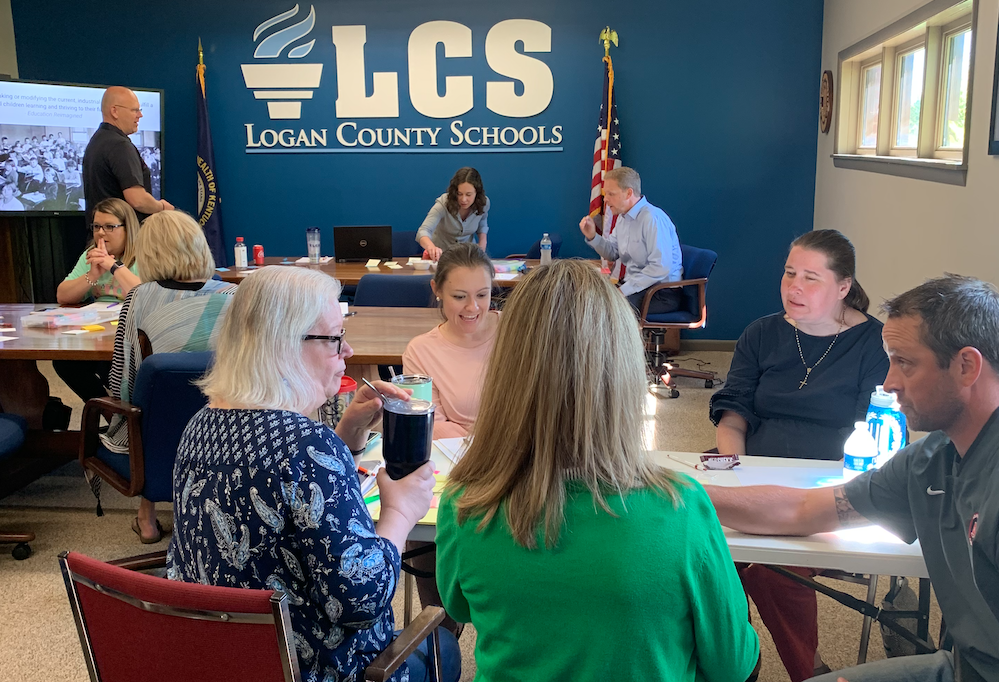
As we continue to work with the team at Logan County we will create professional learning experiences that model the learning the team wants to see in the classroom. This professional learning will build on what individuals know and can do, and will empower learners to explore questions or challenges that directly impact them and their unique context. Throughout our work, we will ensure opportunities to learn and create opportunities to reflect, refine, and improve as a community of learners. Our partnership will enable educators to engage in:
Self Assessment + Goal Setting: Leveraging Learner-Centered Collaborative’s educator competencies, educators will self-assess and set goals to guide their learning path.
Action Research: Beginning with a challenge that is meaningful, educators will investigate new solutions, put them into practice, study the outcomes, and learn to improve. Using the “Evaluate, Understand, Plan, Engage” framework enables rapid cycles to continually improve practice in an area that is relevant to one’s own practice and unique context.
Learning Walks: Educators will build capacity and develop a shared understanding of what powerful teaching and learning looks like, sounds like, and feels like, through observing (not just talking about) teaching and learning.
Evidence-Based Decisions: Educators will collect evidence, share student work, and use protocols to provide and receive feedback based on learning outcomes to inform next steps.
Learning Communities: Educators will connect with others in intentionally designed learning experiences to ensure learning among the community and amplify lessons learned.
Until educators collectively understand the vision, have clear expectations, and engage in collective inquiry to find and solve problems that impact powerful learning, they will not “buy in” and change their practice. Deep, meaningful learning—whether it’s for administrators, teachers, or students—takes time, ownership, and an investment. If you want to create a culture of rich learning, you have to invest in the process.
Whether you are setting your vision, establishing metrics for success, or shifting your learning model, our customized professional learning can support your school or districts, starting with your unique needs. Connect to learn more.


